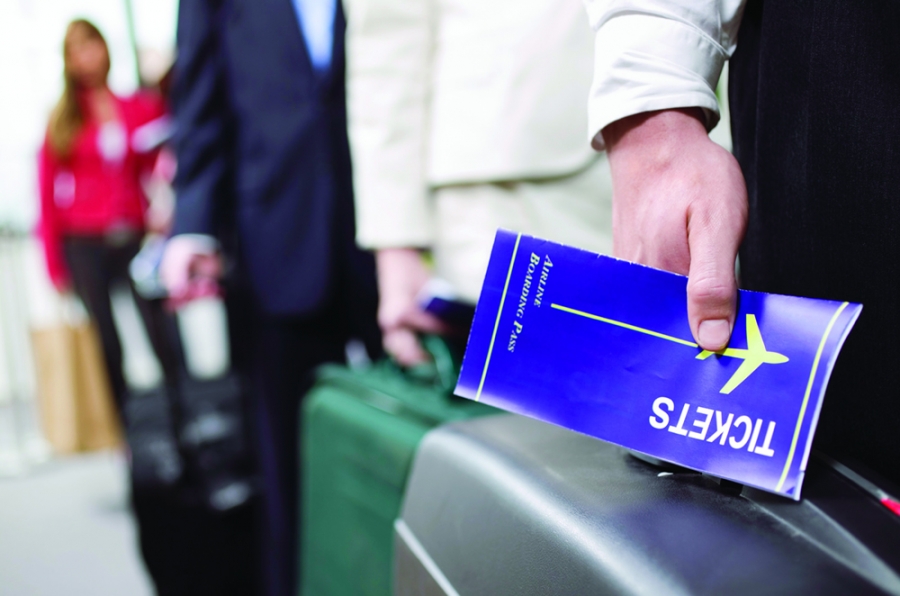Airline Etiquette and Other Courteous Travel Behavior
Since the advent of commercial airline travel, travelers have been able to visit parts of the world that would have been nearly impossible to see in eras past. According to the International Air Transport Association, more than 8 million people board flights around the world each day.
From the moment they enter an airport to the time they land in their destination, travelers can expect to share intimate quarters with strangers, and responsible jetsetters know they must be on their best behavior to make the most of their trip. For those unaccustomed to flying, the following are a few airline etiquette guidelines that can make your trip go more smoothly.
- Know what to do at security checkpoints. Airlines employ personnel to protect the public. X-ray machines will scan carry-on luggage, and you may be subject to an inspection. Listen to Transportation Security Administration employees about how to go through security checkpoints quickly and properly, and expect to remove your shoes, belts and jewelry.
- Check large baggage. Many airlines have strict size limitations for carry-on bags. Airlines also restrict how many personal bags a person can bring into the cabin. Attempting to squeeze large bags into overhead compartments can add to the amount of time required to board the flight. When stowing bags, do so in the overhead bin closest to your seat rather than trying for a spot by the front of the plane for a quick exit.
- Don't rush the boarding gate. Airlines frequently give boarding privileges to premier passengers and other fliers with special needs. Remain seated until your seating group is called. Passengers with young children or elderly and disabled passengers may need additional time boarding, so allow them to board first.
- Sit in your assigned seat. If your flight is full, you will have to sit in your assigned seat. If not, ask a flight attendant if it's alright to move to a more comfortable seat. If you are traveling solo and a fellow passenger asks to switch seats so he or she can be closer to his or her traveling companion, switch seats if doing so does not compromise your comfort level.
- Be considerate of personal space. Personal space is at a premium on an airplane. You very well may be rubbing elbows with a complete stranger. Attempt to keep arms and legs in your seat area. Also, avoid grabbing or jostling the seat in front of you. Recline only if necessary and give the passenger behind you due warning.
- Keep conversation to a minimum. If you must converse on a flight, be considerate of your fellow passengers when doing so. Avoid speaking loudly and try to keep conversation at a minimum, as your fellow passengers may want to sleep or quietly read a book or watch a movie while the plane is in the air.
- Have a plan when traveling with children. Children can add a different dimension to a flight. Parents should do their best to ensure kids behave. But a long flight coupled with close quarters can make that difficult. Be sure to bring along plenty of activities and some snacks to keep kids occupied on the flight.
- Get up at convenient times. Bathroom breaks may be unavoidable, but try to time them when the flight attendants are not doing meal or drink service. Avoid having too many beverages, as that will only lead to more trips to the restroom.
- Be considerate and quick when exiting. Once the plane has landed and passengers begin to deplane, keep in mind that everyone is anxious to exit the cabin. Gather your belongings and be prepared to exit in an orderly fashion.

I deal in dreams, and my goal is to find the best and highest quality package that fits each of my clients’ budgets. I offer personalized service for each of my clients, to create the dream vacation for each person who chooses my travel agency.
CONTACT TRAVEL DREAMZ
- 301 South 3rd Street Suite 145
Ironton OH 45638 - pam@booktraveldreamz.com
Store Hours:
Appointments Available:
Mon - Fri: 9am - 5pm
Weekend Appointments Available Upon Request

